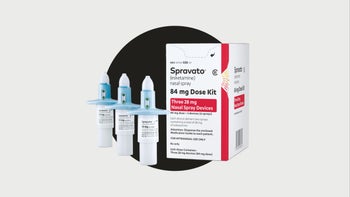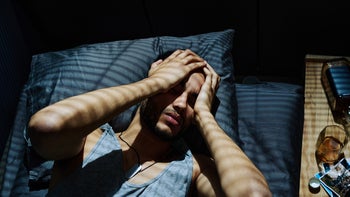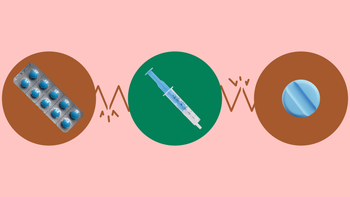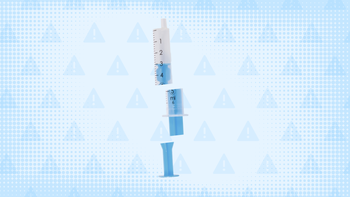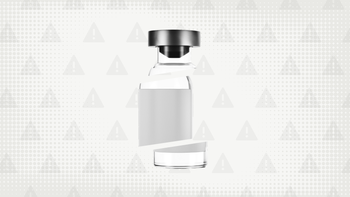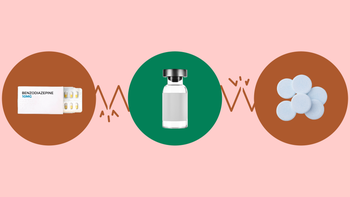
What Are the Side Effects of Magic Mushrooms (Shrooms)? A Look at Short- and Long-Term Side Effects
Key takeaways:
Magic mushrooms contain an ingredient called psilocybin. It affects the brain in multiple different ways, causing both pleasant and unpleasant mental health side effects.
Magic mushrooms can be harmful if they lead to distressing hallucinations, agitation, or psychosis. So far, no serious long-term side effects have been identified.
Researchers are actively discovering ways that psilocybin can treat certain mental health conditions. But it shouldn’t be consumed outside a supervised, medical setting.
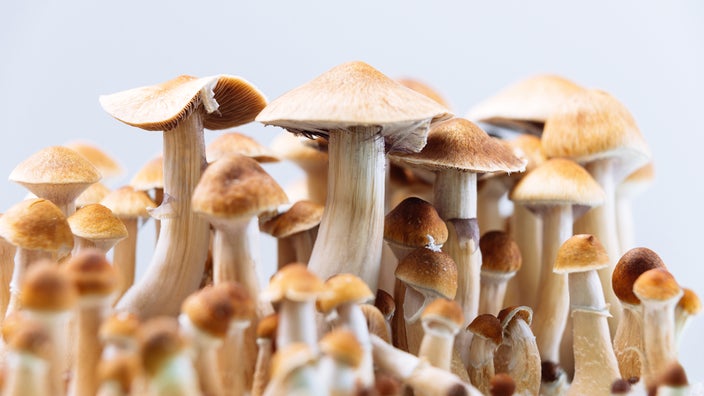
Magic mushrooms contain psychoactive ingredients that affect your brain and body in various ways. Even though their history may seem relatively recent, ancient cultures have ingested these mushrooms for recreational, religious, and medicinal purposes for centuries.
Magic mushrooms can be powerful and dangerous in large amounts. But healthcare professionals and researchers have started looking at them differently. Some scientific studies suggest that magic mushrooms may be a useful treatment for mental health conditions — like depression, anxiety, and substance use — when dosed in the right amount.
But magic mushrooms can have drastically different effects depending on the person and their underlying mental health. So it’s important to understand the range of side effects and potential risks before you try it.
What are magic mushrooms?
Magic mushrooms (often referred to as “shrooms”) are a broad category that includes at least 300 different species of hallucinogenic mushrooms. Most of them contain psilocybin and psilocin, which are the active components in the mushrooms that cause mind-altering effects.
You can ingest psilocybin in a few different ways. Some people eat the mushrooms (raw or cooked). People also use the mushrooms to make teas or other beverages. Some dry the mushrooms, turn them into a powder, and put them in capsules.
How do magic mushrooms affect the brain?
Researchers still have a lot to learn about the different ways that magic mushrooms affect brain function. But they have identified two active ingredients that seem to account for the mind-altering effects — psilocybin and psilocin. These substances activate serotonin receptors in your brain. Serotonin is the chemical in the brain that affects mood and perception.
What is microdosing? People are exploring how very small doses of psychedelic drugs can provide pleasurable side effects with lower risk.
Psilocybin and depression: Learn about the emerging research on how psychedelic-assisted therapy can help people with certain types of depression.
Do you have treatment-resistant depression? Ignore the name — treatment-resistant depression is treatable. Learn about your options.
This may only be the beginning of our understanding. More recent research in humans has started to uncover how psilocybin disrupts connections in the brain responsible for symptoms of depression, anxiety, and substance use disorders. Not only that, it activates other parts of the brain that help combat these symptoms. In other words, psilocybin turns down the volume on harmful brain signals. And it increases the volume on helpful ones.
People sometimes have a hard time explaining their experience with magic mushrooms. This is because it can affect multiple different aspects of brain function and processing. But most people describe the experience as both positive and enjoyable. Magic mushrooms tend to cause:
Visual, sensory, and auditory hallucinations
Elevated mood and euphoria
Speeding up or slowing down of time
A separation from the sense of self or ego
A sense of wonder and awe
A mystical, spiritual, or religious experience
Read more like this
Explore these related articles, suggested for readers like you.
But even though magic mushrooms often lead to a positive experience, this isn’t always the case. Some of the side effects can be more harmful.
What are the side effects of magic mushrooms?
Compared to other mind-altering substances, the side effects of magic mushrooms are considered to be much safer. Clinical trials report very few adverse events and haven’t found any serious long-term side effects. But it’s important to note that clinical trials often exclude people with certain mental health conditions that can increase the risk of unwanted side effects. (We cover these in a later section.)
Still, magic mushrooms can lead to both mental and physical side effects that can be distressing. The unwanted mental side effects can include:
Distressing hallucinations
Anxiety, fear, or paranoia
Agitation
Confusion and disorientation
Psychosis, in rare circumstances
Even though it’s rare, someone’s altered sense of reality can lead to accidental self-harm, especially if they aren’t in a safe environment while the mushrooms are in their system. This is why treatment with magic mushrooms should always happen in a supervised, medical setting.
Beyond its mental effects, psilocybin can cause physical side effects in your body. These can be the direct result of the mushrooms or a physical reaction to the psychological experiences while taking magic mushrooms. They include:
Nausea or vomiting
Elevated heart rate, which may cause palpitations
Elevated blood pressure, which may cause chest pressure or headaches
Sweating
Are there any long-term side effects of magic mushrooms?
Clinical studies have looked specifically at long-term side effects of magic mushrooms — and have observed very few. One research study looked at almost 20,000 people who use psychedelic drugs. They didn’t find any increased risk of long-term mental health conditions including:
Psychological distress
Depression
Anxiety
Suicidality
It’s also well established in the medical community that magic mushrooms and psilocybin aren’t addictive or habit-forming like other psychoactive drugs.
Magic mushrooms are also not lethal in the same way as other recreational drugs. High doses may lead to a more intense psychological experience, but they don’t carry the risk of overdose or death like opioids, cocaine, or alcohol.
That being said, magic mushroom use can still lead to serious bodily injury or death. As mentioned above, psychedelics can alter someone’s perception of reality. There have been case reports of people believing they have superpowers, like flying, and jumping from high structures. Again, this is why it’s only advised to ingest magic mushrooms in a professionally supervised setting.
Who should not take magic mushrooms?
Given the rare but serious risk of psychosis, experts recommend you don’t take magic mushrooms if you have a history of:
Any prior episode of psychosis
The temporary physical side effects — particularly the rise in heart rate and blood pressure — may also be dangerous for people with heart disease or high blood pressure — especially if these conditions aren’t well controlled at baseline.
Are there recommended guidelines for magic mushroom dosage?
Magic mushroom doses can be measured in a few different ways. They can be dosed based on the dry weight of the whole mushroom. But this isn’t the most accurate predictor of its actual psilocybin content. So, in research and medicinal settings, dose is often based on the amount of psilocybin.
Early clinical trials dosed psilocybin based on someone’s weight — generally ranging from 0.2 mg/kg to 0.4 mg/kg. But more recent research suggests that someone’s experience from magic mushrooms doesn’t depend on weight. It’s now more standard practice to use a fixed dose of 25 mg.
In treatment settings, dosing may still vary between 20 mg and 50 mg of psilocybin. This is usually determined on an individual basis based on people’s prior experiences with psilocybin, their current mental health status, and other medications.
As mentioned, dosing based on the dry weight of the mushrooms is less accurate. This is because the psilocybin content in mushrooms can vary from species to species, and even from mushroom to mushroom. But in general, about 1% of the dry weight will estimate the psilocybin content. So, 2.5 g of dry mushroom will contain roughly 25 mg of psilocybin.
How long do magic mushroom effects last?
On average, the effects of magic mushrooms last about 4 to 6 hours.
Research suggests that for a 25 mg dose of psilocybin, most people experience:
First onset of effects about 20-40 min after ingestion
Peak effects around 60-90 mins
Clearing of the mind-altering effects by 6 hours
But this can vary depending on the dose taken. The effects may also change based on someone’s fasting status. Like dosing, weight seems to affect this less.
The bottom line
Magic mushrooms are showing promise as a new treatment for mental health conditions like depression and substance use. But researchers are still learning how they work and the best way to use them safely. Unwanted side effects can lead to mental distress or even bodily injury. For this reason, recreational use is risky and not recommended. In the near future, there may be more opportunities for people to explore the effects of magic mushrooms in a professionally supervised setting.
Why trust our experts?


References
Garcia-Romeu, A., et al. (2021). Optimal dosing for psilocybin pharmacotherapy: Considering weight-adjusted and fixed dosing approaches. Journal of Psychopharmacology.
Government of Canada. (2024). Psilocybin and psilocin (magic mushrooms).
Johansen, P., et al. (2014). Psychedelics not linked to mental health problems or suicidal behavior: a population study. Journal of Psychopharmacology.
MacCallum, C. A., et al. (2022). Therapeutic use of psilocybin: Practical considerations for dosing and administration. Frontiers in Psychiatry.
Nichols D. E. (2020). Psilocybin: From ancient magic to modern medicine. The Journal of Antibiotics.
Siegel, J. S, et al. (2024). Psilocybin desynchronizes the human brain. Nature.
Smausz, R., et al. (2022). Neural mechanisms underlying psilocybin’s therapeutic potential – the need for preclinical in vivo electrophysiology. Journal of Psychopharmacology.
Strauss, D., et al. (2022). An overview on the taxonomy, phylogenetics and ecology of the psychedelic genera Psilocybe, Panaeolus, Pluteus and Gymnopilus. Frontiers in Forests and Global Change.
Keep in mind that psilocybin is legal in some states for personal and/or medicinal use, but not in others. Psilocybin is still illegal under federal law.





